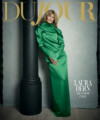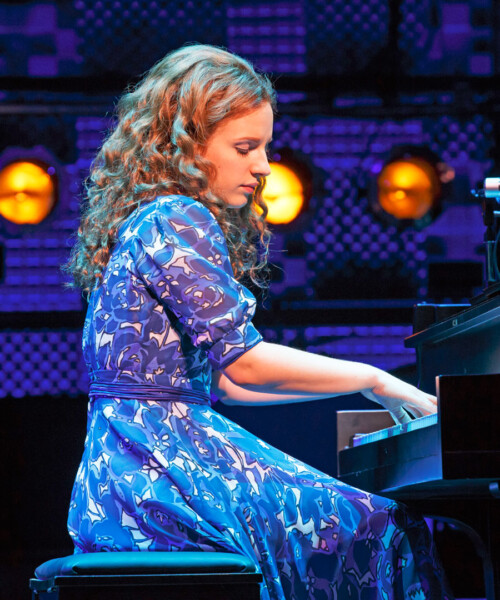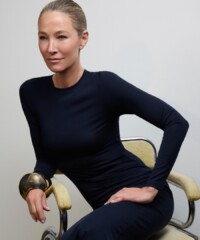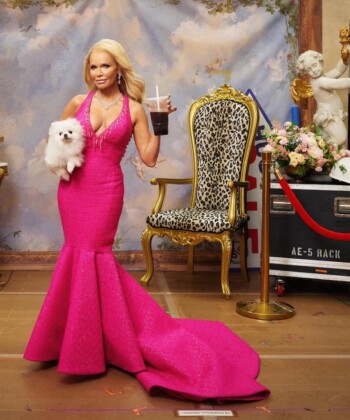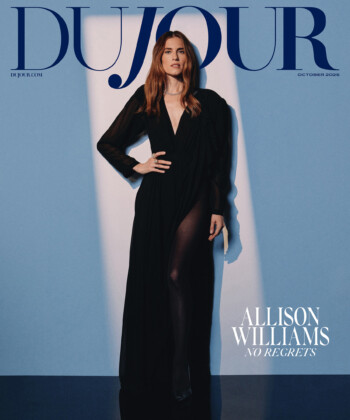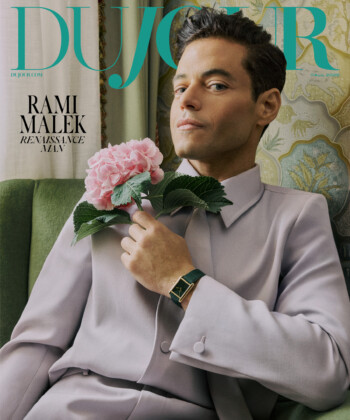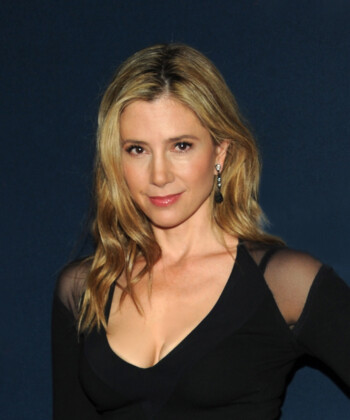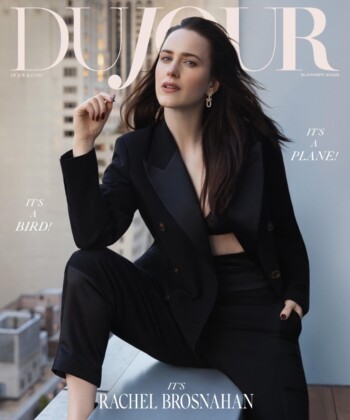At the upcoming Tony Awards, Beautiful, the Broadway musical based on the life and work of beloved songstress Carole King, is nominated for a whopping seven awards. And while only one of those awards—Best Book of a Musical—names the show’s writer, Douglas McGrath, all of them are a credit to his work.
McGrath’s no stranger to this story of attention; he’s been in the public eye for years as the writer and director of films including Emma and Infamous, though these Tony nominations—which also include Best Musical, Best Performance by an Actress in a Leading Role and Best Performance by an Actor in a Featured Role—are his first.
DuJour spoke to McGrath about writing the show, what made King an ideal inspiration and how there truly is one nomination that’s sweeter than all the rest.
How did you come to write a show about Carole King—are you some kind of super fan?
Most people, if they make any assumption at all, think that I must have been in love with Tapestry. But in fact, in the early drafts of the show, I didn’t even take Carole’s story up to Tapestry. From the time she was 16, she was writing not only big hit songs, but also superlative pop songs—really great songs for other artists. She had no ambition to be a singer. She was writing for The Drifters, The Shirelles, Aretha Franklin and The Monkees. Nobody really knew that was what she was doing. I was drawn to the idea of a teenage girl succeeding not as a pop star, but as a writer.

Douglas McGrath
And were you concerned with telling a true story or just riffing on the general idea of her experiences?
Well, you always go to the facts first—and often you come back to the facts later. You find that the answer is often in the truth. But because I was condensing what eventually is 14 years of the four main character’s lives, there has to be some compression. It’s not the literal truth, but what people are seeing is the essential truth.
You’ve written a play about Carole King and a movie about Truman Capote. Is there any common quality between the personalities that have inspired you?
I always look for something that’s surprising, and I found Carole was surprising to me in a number of ways. And often there’s some overlap with my life and my experience that allows me to write about it with conviction. Even though I’m not a girl from Brooklyn, there were just things in her struggle and in her story that I related to, so that’s always interesting to me.
So were you expecting to get this large, impressive number of Tony nominations?
No! You know, you always hope people see what you see or feel what you feel about a project, but it was a particularly crowded and busy season this year for musicals, and the quality of the work that was being done by the other shows was very high. We were all really touched and thrilled—but I never expected anything.
Is there one nomination that’s more satisfying than any other?
For me, it’s being nominated for Best Musical. Before I got into theater, people would say to me, ‘Oh, playwriting is so different than the movies. Playwriting is the king.’ It’s not really like that. The cast can’t do something that I don’t want them to do, meaning they can’t cut a scene that I want in the play because it comes down to the playwright. And yet, I can’t make them—if I wrote a scene everyone hated, we’re all in it together. It ends up being much more of a collaborative team effort. Best Musical is great because it takes into account everyone on stage, and they’re all doing great work but not every individual person can be nominated.
You co-wrote the film Bullets Over Broadway, which was adapted for the stage this Broadway season. Do you have any ties to the show?
No, I’m just an admiring friend of the court.
And is that an odd feeling?
No. The whole Bullets experience was so pleasant because Woody’s a great friend of mine and we had a wonderful experience doing the movie, so when he wanted to do the show, he had an idea of what he wanted and it was easier for him to execute it. He saw it in a certain way and he’s been very inclusive throughout. I’ve always been invited to rehearsals. I have a very happy association with him, and I loved that I got to know Susan Stroman and a lot of the other great people in the cast.
You don’t feel at all competitive?
Not at all. To be honest, if Woody would win, I would be so happy. I feel I owe him so much.
Are there any Carole King songs you’re sick to death of?
Not at this moment, but during some periods of the show, I would go to bed with one of the songs from the show in my head. Then I’d wake up the next morning with it still in my head and I’d have to put my iPod on and listen to something totally different. Luckily, it’s a very rich catalogue and the songs in my head kept changing.
Is there anyone else you’re itching to write about? Do you keep a list of people who would make great shows?
I don’t really, but there’s a moment where something comes up and you just think, oh, that’s an interesting person. Sometimes it’s someone you’ve been interested in for a long time, and then, for some reason, it just lands in your head in a different way. When I made Infamous, I’d been thinking about Truman Capote for a while because I read him a lot. Then, all of the sudden, I saw him in terms of a story rather than just as a person. It’s a funny thing because an idea needs to situate itself in my brain in a certain way. If I don’t know how to limit it or narrow it down, then I don’t want to do it just because.
MORE:
Isabel Toledo on Creating Costumes for Broadway’s After Midnight
Rocky’s Margo Seibert: Broadway’s New Knockout
Bridges of Madison County Star on the New Musical





















